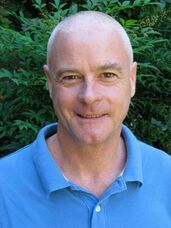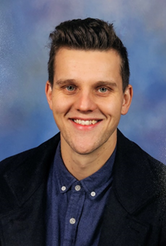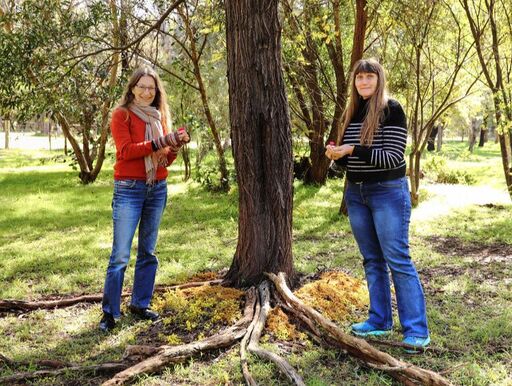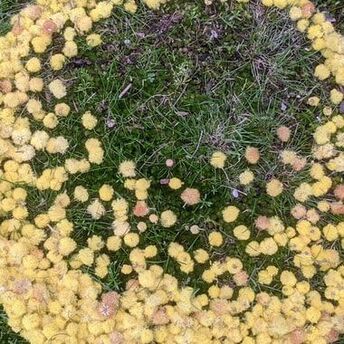Natural Connections Project - Program
Our aim is to support members of our community in the development of inner peace and to re-sensitise our relationship with the planet.
The program offers practical strategies through a collaboration between ephemeral art, meditation and inspirational speakers to cultivate a connection with nature and promote greater emotional wellbeing as we face the difficult reality of climate change.
The gardens at the Drolkar Buddhist centre are varied and extensive, providing a perfect venue to stimulate ideas for artistic expression, whilst still being a peaceful location to immerse yourself and enjoy the creative experience.
Rebecca Hosking will photograph works by all participants
The program offers practical strategies through a collaboration between ephemeral art, meditation and inspirational speakers to cultivate a connection with nature and promote greater emotional wellbeing as we face the difficult reality of climate change.
The gardens at the Drolkar Buddhist centre are varied and extensive, providing a perfect venue to stimulate ideas for artistic expression, whilst still being a peaceful location to immerse yourself and enjoy the creative experience.
Rebecca Hosking will photograph works by all participants
Our Speakers and Ephemeral Art Program

Welcome to Country
Corrina Eccles is a proud Wadawurrung woman, living on Wadawurrung country, with five generations of her family. Her learning journey started as a young woman and is still continuing to this day. Corrina strongly believes that knowing her identity, history, culture and language are the things that make her strong, and that her commitment to sharing this knowledge and educating those around her keeps the spirit, voice and traditions of Wadawurrung people alive and hopes by sharing, we can all understand, come together and care for Wadawurrung Country. Corrina is the Wadawurrung Traditional Owners Aboriginal Corporation Cultural Education Manager, and engages in educational sessions to children, both in schools and on country, as well as for adults and businesses in the wider Geelong area.
Caring for and nurturing of country is also a passion of Corrina’s, she advocates to ensure that no further harm to our country and waterways occurs, and to this end is active on various boards in the broader Geelong area, and has received recognition for this by being awarded the First nations Woman of the Year Award on behalf of the City of Greater Geelong and a finalist in the Geelong Advertiser 2020 Woman of the year award.Website Wadawurrung.org.au
Corrina Eccles is a proud Wadawurrung woman, living on Wadawurrung country, with five generations of her family. Her learning journey started as a young woman and is still continuing to this day. Corrina strongly believes that knowing her identity, history, culture and language are the things that make her strong, and that her commitment to sharing this knowledge and educating those around her keeps the spirit, voice and traditions of Wadawurrung people alive and hopes by sharing, we can all understand, come together and care for Wadawurrung Country. Corrina is the Wadawurrung Traditional Owners Aboriginal Corporation Cultural Education Manager, and engages in educational sessions to children, both in schools and on country, as well as for adults and businesses in the wider Geelong area.
Caring for and nurturing of country is also a passion of Corrina’s, she advocates to ensure that no further harm to our country and waterways occurs, and to this end is active on various boards in the broader Geelong area, and has received recognition for this by being awarded the First nations Woman of the Year Award on behalf of the City of Greater Geelong and a finalist in the Geelong Advertiser 2020 Woman of the year award.Website Wadawurrung.org.au

Maintaining Equanimity in the face of a Climate Emergence
The practice of Buddhism encourages helpful actions over unhelpful actions. Bringing helpful action, thoughts and emotions into the journey of an increasingly challenging climate, both politically and environmentally enables the sustainability of the individual in the challenges. Many people experiencing the dissonance between the action on our climate and the need for changes are experiencing many negative emotions. This session will explore ways of being that will support the individual in the joys and frustrations with the climate journey.
Michael Anderson has been practicing mindfulness meditation for over 35 years commencing his interest in mindfulness in the early 1980's. His early interest was stimulated by the work of the late Dr Ainslie Meares and through the practice of Yoga. He has been teaching mindfulness in organisational and community settings since 1995. This includes teaching on 3 and 5 day retreats. Michael has also been applying the principles of mindfulness within his professional work as a psychologist since 1995. His personal practice has informed all aspects of his life and the learnings and insights continue.
Michael has been actively integrating mindfulness into a range of environments from counselling through to leadership training and executive development. In this time there have been numerous developments by professionals around the world in the application of mindfulness and mental health which have included professional training. Michael has participated in professional training programs in Acceptance and Commitment Therapy (ACT) Dialectical Behavioural Therapy (DBT) and Mindfulness Based Cognitive Behavioural Therapy (MBCT). Michael currently works in private practice on the Surfcoast in Victoria, and supervises and trains health professionals including Psychologists in mindfulness practice in therapeutic contexts.
Michael is the author of a book titled Mindfulness Practice. Michael's website Mindfulness therapy
The practice of Buddhism encourages helpful actions over unhelpful actions. Bringing helpful action, thoughts and emotions into the journey of an increasingly challenging climate, both politically and environmentally enables the sustainability of the individual in the challenges. Many people experiencing the dissonance between the action on our climate and the need for changes are experiencing many negative emotions. This session will explore ways of being that will support the individual in the joys and frustrations with the climate journey.
Michael Anderson has been practicing mindfulness meditation for over 35 years commencing his interest in mindfulness in the early 1980's. His early interest was stimulated by the work of the late Dr Ainslie Meares and through the practice of Yoga. He has been teaching mindfulness in organisational and community settings since 1995. This includes teaching on 3 and 5 day retreats. Michael has also been applying the principles of mindfulness within his professional work as a psychologist since 1995. His personal practice has informed all aspects of his life and the learnings and insights continue.
Michael has been actively integrating mindfulness into a range of environments from counselling through to leadership training and executive development. In this time there have been numerous developments by professionals around the world in the application of mindfulness and mental health which have included professional training. Michael has participated in professional training programs in Acceptance and Commitment Therapy (ACT) Dialectical Behavioural Therapy (DBT) and Mindfulness Based Cognitive Behavioural Therapy (MBCT). Michael currently works in private practice on the Surfcoast in Victoria, and supervises and trains health professionals including Psychologists in mindfulness practice in therapeutic contexts.
Michael is the author of a book titled Mindfulness Practice. Michael's website Mindfulness therapy

How do we Talk to Young People
This presentation will explore the way climate anxiety manifests for children and their parents and offers concepts and strategies to reduce distress. Like other workshops within the Natural Connections project, mindfulness will be explored as a mechanism of psychological coping. Participants will walk away with techniques that enable them to support children, process the stress, anger and grief associated with the climate emergency.
Content -
Explore the impacts of the climate emergency from the viewpoint of a young person.
Highlight children’s specific emotional and behavioural manifestations that relate to the climate emergency.
Highlight evidenced-based parenting approaches based on cognitive behavioural therapy, acceptance commitment therapy and research on fostering resilience.
Jesse Diggins is the Director of Strength Psychology and the Educational Psychologist at MacKillop Education Specialist School. Jesse works with a wide range of children, adolescents and parents on emotional and behavioural difficulties., Jesse also has a specialised interest in Positive Psychology and how to maximise happiness and life satisfaction.
Jesse has worked closely with young people for 8 years and has received awards at a local and state level for his work. In working with children and parents, Jesse’s approach often involves learning about how our brains work and how to manage big feelings. This is conducted through evidence-based Psychoeducation and Cognitive-Behavioural Therapy. Jesse’s work with adolescents is guided by Acceptance and Commitment Therapy and Mindfulness and belief that therapeutic progress is underpinned by a strong relationship with the young person.
This presentation will explore the way climate anxiety manifests for children and their parents and offers concepts and strategies to reduce distress. Like other workshops within the Natural Connections project, mindfulness will be explored as a mechanism of psychological coping. Participants will walk away with techniques that enable them to support children, process the stress, anger and grief associated with the climate emergency.
Content -
Explore the impacts of the climate emergency from the viewpoint of a young person.
Highlight children’s specific emotional and behavioural manifestations that relate to the climate emergency.
Highlight evidenced-based parenting approaches based on cognitive behavioural therapy, acceptance commitment therapy and research on fostering resilience.
Jesse Diggins is the Director of Strength Psychology and the Educational Psychologist at MacKillop Education Specialist School. Jesse works with a wide range of children, adolescents and parents on emotional and behavioural difficulties., Jesse also has a specialised interest in Positive Psychology and how to maximise happiness and life satisfaction.
Jesse has worked closely with young people for 8 years and has received awards at a local and state level for his work. In working with children and parents, Jesse’s approach often involves learning about how our brains work and how to manage big feelings. This is conducted through evidence-based Psychoeducation and Cognitive-Behavioural Therapy. Jesse’s work with adolescents is guided by Acceptance and Commitment Therapy and Mindfulness and belief that therapeutic progress is underpinned by a strong relationship with the young person.
The Benefits of Living Sustainably
James will guide us through an interactive and engaging workshop on how we can all make simple changes to the way in which we live, to ultimately lighten our impact on the earth and in turn, the heaviness we feel about issues such as climate change.
James Mclennan lives and breathes environmental conservation, preservation and regeneration. He strives to promote environmental awareness and sustainable living through facilitation, inspiration, community engagement, experience and curiosity. Combined with his passion for and extensive experience in the sustainability sector, he has seen a fruitful history of partnering with schools on education programs. Over the last 15 years, James has dreamed, designed, developed and implemented education programs to engage people of all ages with their surrounding environment. James now runs his own business, Grassroots Sustainability, to reconnect people to the food cycle and to instil a greater understanding of how individuals, organisations, businesses and communities can implement sustainable practices. James Mclennan's website Grassroots Sustainablity
James will guide us through an interactive and engaging workshop on how we can all make simple changes to the way in which we live, to ultimately lighten our impact on the earth and in turn, the heaviness we feel about issues such as climate change.
James Mclennan lives and breathes environmental conservation, preservation and regeneration. He strives to promote environmental awareness and sustainable living through facilitation, inspiration, community engagement, experience and curiosity. Combined with his passion for and extensive experience in the sustainability sector, he has seen a fruitful history of partnering with schools on education programs. Over the last 15 years, James has dreamed, designed, developed and implemented education programs to engage people of all ages with their surrounding environment. James now runs his own business, Grassroots Sustainability, to reconnect people to the food cycle and to instil a greater understanding of how individuals, organisations, businesses and communities can implement sustainable practices. James Mclennan's website Grassroots Sustainablity
Ephemeral Art
“Movement, change, light, growth and decay are the life-blood of nature, the energies that I try to tap through my work.“ – Andy Goldsworthy.
Saturday morning: an introduction to Ephemeral art,
Saturday afternoon: a group workshop in the Drolkar gardens to spark the creative juices. Sunday: Participants will be invited to explore gardens and guided in creating their own small artwork. Photographer Rebecca Hosking and artists Sharon Barrett, Peter Day and Amanda Magan will be around to assist.
Some of the benefits of practicing Ephemeral Art:
Observe nature intimately and intuitively, by gaining a tactile understanding of nature and to be inspired by its beauty.
Develop calmness, concentration, creativity and the value of controlling thoughts through mindfulness and an understanding of the interconnectedness and impermanence of all things.
Feel present, receptive and not reactive.
Develop a strategy to practice at any time to find some moments of peace and joy.
Assist with development of an accepting attitude to life and its challenges and begin to see the interconnectedness of all things.
Deepen an awareness of how nature changes and ultimately nurture a desire to care for our natural environment even in the smallest of ways.
“Movement, change, light, growth and decay are the life-blood of nature, the energies that I try to tap through my work.“ – Andy Goldsworthy.
Saturday morning: an introduction to Ephemeral art,
Saturday afternoon: a group workshop in the Drolkar gardens to spark the creative juices. Sunday: Participants will be invited to explore gardens and guided in creating their own small artwork. Photographer Rebecca Hosking and artists Sharon Barrett, Peter Day and Amanda Magan will be around to assist.
Some of the benefits of practicing Ephemeral Art:
Observe nature intimately and intuitively, by gaining a tactile understanding of nature and to be inspired by its beauty.
Develop calmness, concentration, creativity and the value of controlling thoughts through mindfulness and an understanding of the interconnectedness and impermanence of all things.
Feel present, receptive and not reactive.
Develop a strategy to practice at any time to find some moments of peace and joy.
Assist with development of an accepting attitude to life and its challenges and begin to see the interconnectedness of all things.
Deepen an awareness of how nature changes and ultimately nurture a desire to care for our natural environment even in the smallest of ways.

Caroline Hawkins left
will run the ephemeral art sessions
Linda Diggins right
will lead the mindfulness meditation at the end of each day.
will run the ephemeral art sessions
Linda Diggins right
will lead the mindfulness meditation at the end of each day.
